What’s the first thing that comes to mind when you hear Chariots of Fire? It is a song isn’t it? College boys sprinting in white on a silky British beach and here comes the famous melody: the theme by Vangelis. But there is a lot more beneath the surface of this 1981 British classic, a film that is not just about running, but about conviction, identity, and the weight of history pressing down on a new generation.
Set in the early 1920s, in the aftermath of World War I, Chariots of Fire captures a moment in time when the world was trying to figure out what came next. A generation had been wiped out on the battlefields, and those left behind found themselves walking among ghosts, either consciously or subconsciously living in the shadow of absent brothers, fathers, and friends. Against this backdrop, a group of privileged young men at Cambridge and Edinburgh turn to sport – not just as a pastime, but as a means of proving something to themselves, to their country and to their God(s).
Harold Abrahams (Ben Cross), the son of a Lithuanian – Jewish financier, has all the polish of an English gentleman but none of the unspoken birthright that seems to make success come easily to his Cambridge peers. His intelligence and talent are undeniable, but he encounters a subtle form of antisemitism, a quiet, clipped disdain from the establishment figures who expect him to “know his place.” Meanwhile, Eric Liddell (Ian Charleson), a deeply religious Scottish sprinter, runs for entirely different reasons – he believes it is a form of divine worship. “When I run, I feel His pleasure,” he says, making it clear that his athleticism is not about personal glory, but a higher calling.

Source: The Guardian
If the film was made today, we would probably get an overdramatized rivalry between Abrahams and Liddell – perhaps a few training montages, some bitter confrontations, and an eventual begrudging respect. But Chariots of Fire is not that kind of film. The two protagonists are not pitted against each other so much as they exist in parallel, each driven by an unshakable sense of purpose.
Abrahams, with his fierce ambition, hires a coach – a move that horrifies the Cambridge establishment, who believe a true gentleman should put off his cigarette, put down his glass of whiskey and run circles in their lush country garden. He should win on talent alone, without the vulgarity of professional guidance. Enter Sam Mussabini (played brilliantly by Ian Holm in an Oscar – nominated performance), a pragmatic and brilliant trainer who understands what it takes to win. Holm, under some truly questionable 1980s makeup, delivers a performance so full of warmth and precision that it is easy to forget that his character is seen as an outsider just as much as his pupil.
Meanwhile, Liddell’s biggest obstacle is not the competition, but his own conscience. When he discovers that one of his races at the 1924 Paris Olympics falls on a Sunday, he refuses to compete. (Reminder: this is a true story!) The British Olympic officials, including the Prince of Wales, attempt to persuade him otherwise – after all, what could be more honorable than running for King and Country? But Liddell’s faith is firm as a bull’s horn. In a surprising moment of sportsmanship, his teammate Lord Andrew Lindsay (Nigel Havers) offers up his own spot in a different race so that Liddell can still compete.
It is a moment that captures the film’s central themes: conviction, sacrifice, and the delicate dance between personal ambition and collective responsibility. Lindsay, a fictional composite character, is the kind of person we all wish we had as a friend – charismatic, playful, self – aware, and willing to do the right thing even when it costs him personally. He is played brilliantly by a goofy yet sensitive young Nigel Havers.
While Chariots of Fire is largely a story about men pushing their physical and ideological limits, it also makes room for the women who stand beside (or sometimes just behind) them. Alice Krige plays Sybil Gordon, a singer who falls in love with Abrahams, only to realize that loving him means sometimes stepping back, letting him disappear into his obsessive training. It is a quietly affecting performance, with Krige bringing a grounded presence to a role that could have easily been one – dimensional.
Meanwhile, Cheryl Campbell’s portrayal of Jenny Liddell, Eric’s sister, is equally compelling. She initially disapproves of his dedication to running, believing he is abandoning his religious calling. Her eventual understanding of his motives adds depth to Liddell’s story, reinforcing the idea that faith – and love – can take many forms. But if we love someone, we let them be who they are and do what they are truly passionate about.
For all its historical weight, Chariots of Fire is, at its core, a classical film about principles. It asks: What are we willing to stand for? How do we balance our personal ambitions with our values? And can a race – a mere hundred meters or so – mean something far beyond the finish line?
It is also a film that feels strangely relevant today – hence this retrospective review. In an era where the lines between personal achievement and social identity are constantly blurred, where the question of who belongs and who does not is still debated in subtle and unsubtle ways, Chariots of Fire remains a quietly radical film. Abrahams fights for acceptance in a society that wants him to stay grateful but not too ambitious. Liddell stays true to his faith in a world that would rather he compromise for convenience. Both are driven by something greater than mere victory, and both are incredibly dedicated, and that is what makes their story resonate beyond the realm of sports.

Source: Telly Visions
Director Hugh Hudson and screenwriter Colin Welland brought a story to life that feels both intimate and epic, with David Watkin’s cinematography capturing the golden hues of nostalgia without ever veering into sentimentality. And then there’s Vangelis – still sends chills down the spine.
So, if you have not revisited Chariots of Fire in a while, consider this your invitation. Whether you watch it for the drama, the history, or just to relive that legendary beach sequence (slow – motion jogging in your own living room is optional), you will find a film that still has a lot to say.
Chariots of Fire is available on AppleTV and streams on Disney+.
~ by Dora Endre ~

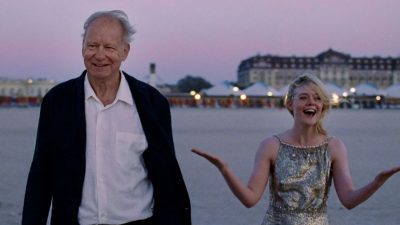
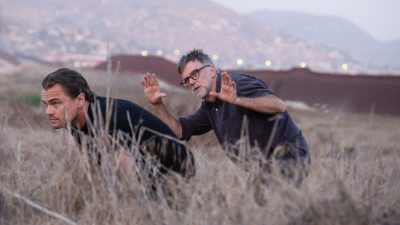
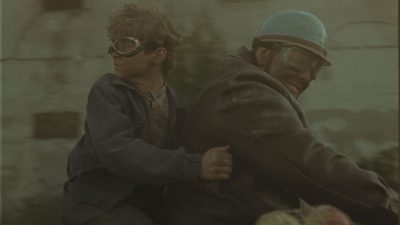















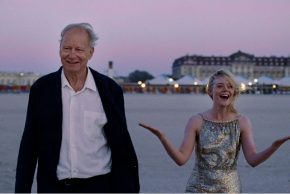
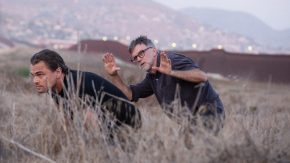
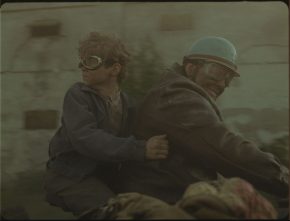
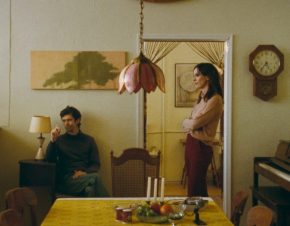
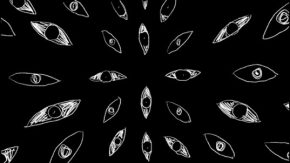

Comments